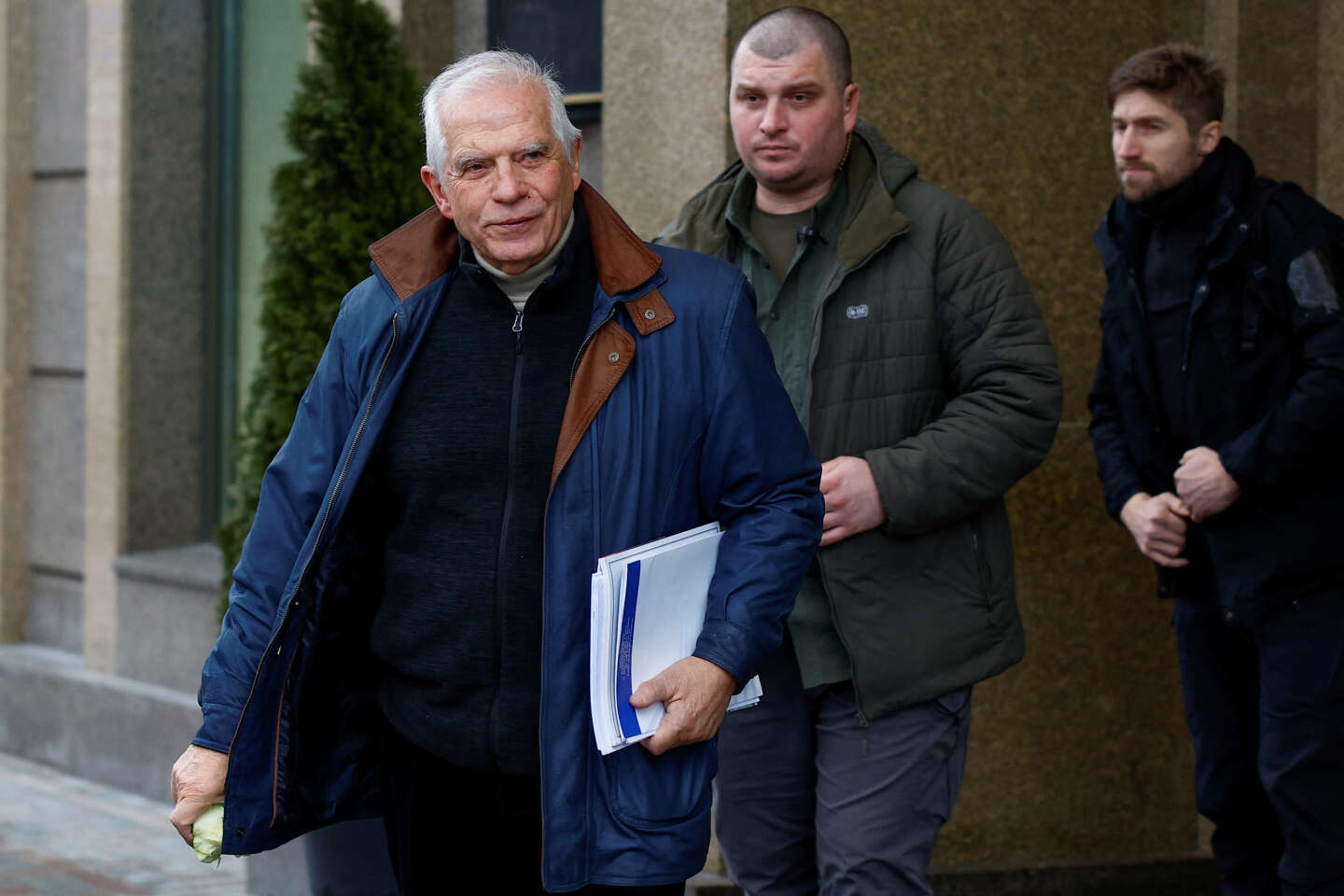


A few days before the second anniversary of Russia's invasion of Ukraine on February 24, the European Union (EU) countries hope to adopt a 13th set of sanctions against Moscow.
Highly symbolic, it should mainly target around a hundred individuals linked to Vladimir Putin's regime. These individuals would be banned from entering Europe and their assets within the EU would be frozen. Additionally, 87 companies would be targeted, with Europeans prohibited from utilizing their services. The sanctions would also include a ban on exporting certain civilian components that Russia uses for drone manufacturing.
For the time being, Hungary is blocking the adoption of these new sanctions, which require unanimity. This is not the first time that Hungarian Prime Minister Viktor Orban, who maintains close ties with Putin, has opposed retaliatory measures against Moscow. So far, however, Budapest has always fallen into line. "Hungary says it needs time to analyze the proposal," explained a European diplomat. The Hungarian government is also keen not to upset Beijing, as three Russian companies located in China, from where they would bypass EU sanctions, are under threat. But "we're close to landing," confided a European source.
Since the start of the war, European nations have already adopted 12 sets of sanctions affecting 1,612 individuals linked to the Kremlin – most of them Russians or Belarusians – and 332 economic entities. Notably, through export and import bans, they cover virtually all sectors of the Russian economy, with the exception of the agri-food sector. While Moscow is trying to convince poor countries that European retaliatory measures are also starving them out, the EU-27 have been careful not to lend credibility to this claim.
Anxious to maintain public support for Ukraine and remain united, Europeans nations also ensured that the sanctions taken against Moscow did not cause them too much harm on themselves. Therefore, after implementing an embargo on Russian coal, they also agreed to phase out Russian oil, allowing transitional periods for countries like Hungary, Bulgaria and the Czech Republic that could not give up these resources overnight. As for Russian gas, on which the 27 member states were heavily dependent, the decision was effectively made by the Kremlin when it shut down the Nord Stream pipeline.
Expanded their legal arsenal
In 2023, the EU still imported 42.9 billion cubic meters of Russian gas, compared with 150 billion cubic meters in 2021, a drop of two-thirds. However, European nations do not plan to eliminate their reliance on the remaining gas imports. Nor have they taken any measures against Russian nuclear fuel, which is needed by several Central and Eastern European countries, most notably Hungary, but also France.
You have 53.66% of this article left to read. The rest is for subscribers only.
